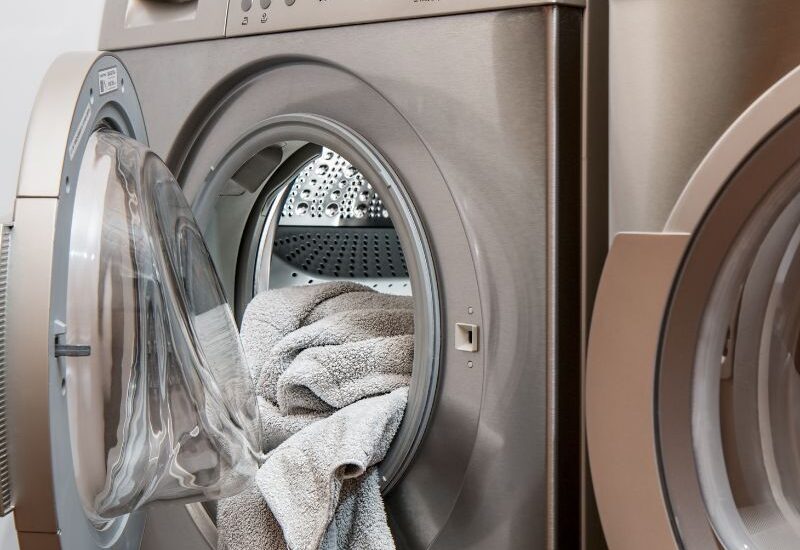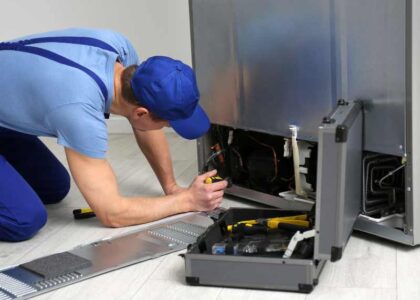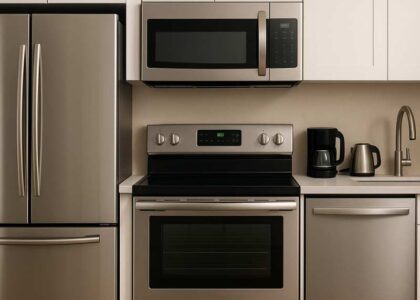When deciding whether to repair or replace your dryer, considering essential home appliance maintenance tips is crucial. Dryers are an essential part of many households, working tirelessly alongside washers to keep clothes fresh and clean. However, when your dryer starts to show signs of wear or stops working altogether, you’re faced with a common dilemma: Should you fix your old dryer or buy a new one? This decision isn’t always straightforward, as it depends on various factors like the age of your dryer, the cost of repairs, and the benefits of upgrading to a newer model. In this article, we’ll walk you through key considerations to help you make the best choice for your situation.
Assessing the Condition of Your Dryer
Before making any decisions, it’s crucial to evaluate the current state of your dryer. Start by considering its age. Most dryers, whether gas or electric, have a lifespan of around 8-12 years. If your dryer is approaching or exceeding this age range, it might be time to start shopping for a new one. On the other hand, if your dryer is relatively new, a repair might be a more practical and cost-effective option.
Next, consider the frequency and severity of the issues you’re experiencing. Minor problems, such as a broken belt or a faulty thermostat, are usually inexpensive and easy to fix. However, if your dryer is experiencing more severe issues like motor failure or drum problems, repairs can be costly and might not be worth the investment, especially if your dryer is older. It’s always best to consult with trained dryer repair service professionals to accurately diagnose and estimate the cost of repairs.
Another important aspect to assess is the energy efficiency of your dryer. Older models tend to be less energy-efficient, leading to higher utility bills over time. If your dryer is taking longer to dry clothes or if you’ve noticed a significant increase in your energy costs, it might be worth considering an upgrade to a more energy-efficient model.
Cost Considerations
When deciding whether to repair or replace your dryer, cost is often the most significant factor. Start by estimating the repair costs. Common repairs, such as replacing a belt or fixing a thermostat, can range from $100 to $200. However, more extensive repairs, such as replacing the motor or drum, can cost upwards of $400. Compare these repair costs to the price of a new dryer, which typically ranges from $500 to $1,000 depending on the brand and features.
A good rule of thumb is to opt for a replacement if the repair costs amount to 50% or more of the price of a new dryer. However, if your budget is tight and the repair costs are manageable, fixing your dryer might be the best short-term solution. It’s also worth considering potential hidden costs associated with keeping an old dryer, such as the likelihood of frequent repairs and higher energy bills.
Environmental Impact
In today’s environmentally-conscious world, the impact of your decision on the environment is another factor to consider. Newer dryers are generally more energy-efficient, which not only saves you money but also reduces your carbon footprint. Energy Star-rated dryers, for example, use 20% less energy than standard models, making them a more sustainable choice.
If you decide to replace your old dryer, be sure to dispose of it properly. Many communities offer recycling programs for old appliances, ensuring that they are disposed of in an environmentally responsible way. By recycling your old dryer and upgrading to a more energy-efficient model, you can reduce your environmental impact and contribute to a greener future.
Technological Advancements in New Dryers
If you’ve had your dryer for a while, you might be surprised by the technological advancements in newer models. Modern dryers come equipped with a range of features designed to improve performance, convenience, and energy efficiency. For example, many new dryers offer smart technology, allowing you to control and monitor your dryer remotely via a smartphone app. This feature can be particularly useful for busy households, as it enables you to start or stop a drying cycle from anywhere.
Other advanced features include sensor drying, which automatically adjusts the drying time based on the moisture level in the clothes, and steam options, which can help reduce wrinkles and eliminate odors. These features not only enhance the drying process but also protect your clothes from damage, extending the lifespan of your garments.
While these modern features are appealing, it’s important to weigh their benefits against the cost of a new dryer. If you value convenience, efficiency, and advanced features, investing in a new dryer might be the right choice for you.
Making the Final Decision
Ultimately, the decision to repair or replace your dryer comes down to a few key factors: the age of your dryer, the cost of repairs, the benefits of a new model, and your personal preferences. If your dryer is relatively new, the repairs are minor, and you’re happy with its performance, repairing it might be the best option. However, if your dryer is old, the repair costs are high, and you’re interested in the energy efficiency and features of a new model, replacing it might be the wiser choice.
Remember, every situation is unique, and what works for one household might not work for another. Consider all the factors, including your budget, environmental impact, and the potential benefits of upgrading, before making your final decision.
Deciding whether to repair or replace your dryer is not an easy task, but by carefully assessing the condition of your dryer, weighing the costs, and considering the benefits of a new model, you can make an informed decision. Whether you choose to repair your current dryer or invest in a new one, the goal is to ensure that your laundry routine remains efficient and hassle-free.
Along with deciding whether to repair or replace your dryer, it’s important to follow essential home appliance maintenance tips to extend the life of your household devices. Proper maintenance, often guided by trained dryer repair service professionals, can help prevent future issues and ensure that all your appliances continue to function effectively for years to come.






